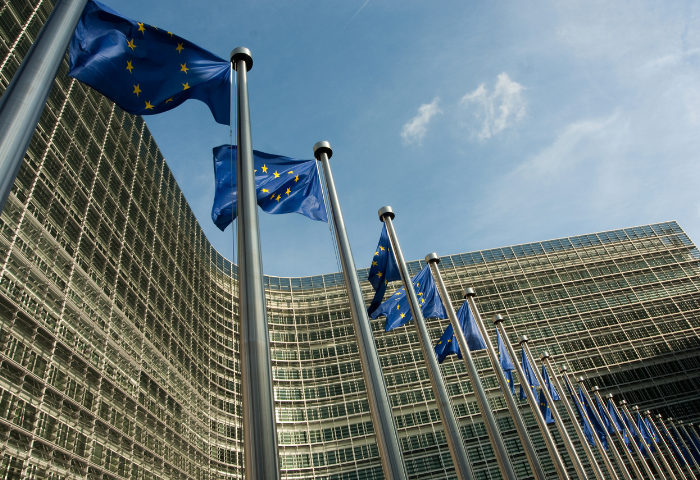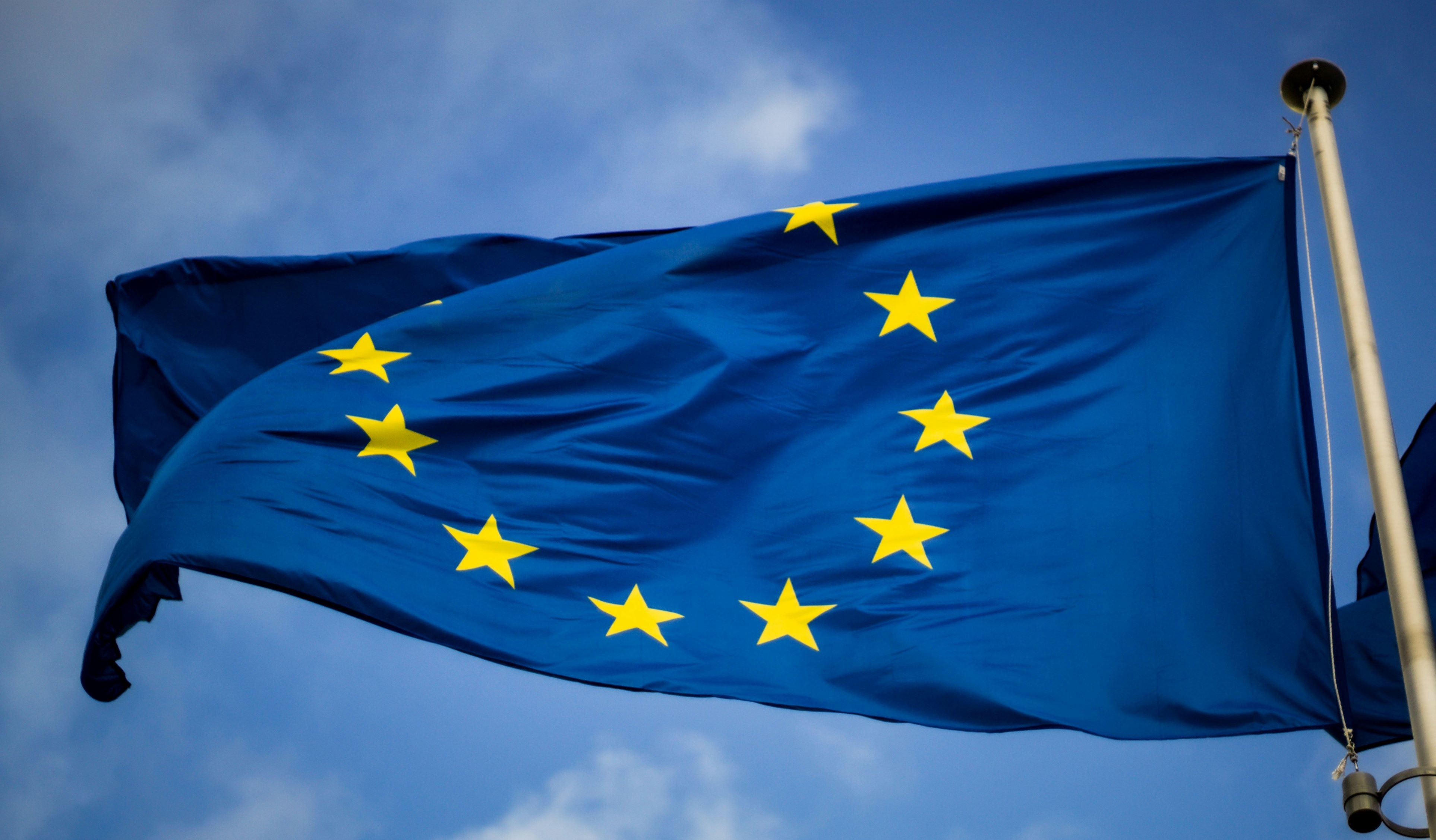
1 Accelerate industrial transformation for a competitive Europe
EU policy already spells out a clear pathway for the emissions reduction from industry under the Emissions Trading System. However, the current economic and regulatory framework makes it hard for the transition to take place. It requires new infrastructure, sufficient green energy, additional R&D, a lead market for green products and access to the needed financing. Ursula von der Leyen places industrial transformation at the top of the Commission’s priorities, promising a ‘Clean Industrial Deal for competitive industries and quality jobs’ within the first 100 days of the new mandate.
ECNO’s latest report reveals that there has been noteworthy progress on the transition in industry: overall GHG emissions are starting to come down and clean energy use in industry is going up. However, crucial enablers like circularity and energy intensity still lag behind. To support further progress, focus should also turn to strengthening the EU cleantech manufacturing base. Progress in cleantech is evident through increased public R&I spending. However, insufficient private R&I investment continues to hinder the sector's long-term competitiveness.
To accelerate the industrial transformation, the new Commission should focus on providing dedicated EU-level funding and other support to trigger the needed investments in key areas like electrification, grid infrastructure, and energy efficiency. Leveraging existing spending through improved green public procurement frameworks could further catalyse progress by creating the needed demand. Such targeted support would enable companies to overcome financial barriers and adopt cutting-edge technologies. By prioritising these measures, the EU can help ensure its industrial base thrives in the transition to a climate neutral economy.

2 Support the implementation of existing policies across Member States
In the last EU legislative term, several strengthened and additional policies were adopted under the “Fit for 55” package. In many cases, their impact depends on strong implementation at the national level. EU targets can only be reached through action and additional strong national policies in Member States – and their progress varies significantly. In ECNO’s assessment, Member States’ lack of follow-through is a key weakness in an otherwise much improved management framework for EU climate action.
President von der Leyen has emphasised that the EU must implement the climate package “in the simplest, fairest, and most cost-efficient way.” However, thus far the Commission has not provided details on how it will support this critical implementation phase. The data shows that national implementation of existing policies is key in each of the areas assessed in the latest ECNO report, highlighting its importance in the next policy cycle.
Facilitating practical implementation, especially in Member States that show gaps in progress, should be a top priority for the new Commission. By providing technical support, clarifying guidelines for implementation, and, when necessary, applying additional pressure, the Commission can help align national efforts with EU goals. A crucial process will be the follow-up on National Energy and Climate Plans (NECPs), both in terms of final delivery and monitoring progress over time, to ensure transparency and accountability of Member States’ actions.

3 Facilitate the investments necessary for the transition
Investments in clean technologies, cleantech manufacturing, as well as green products and services, needed now to enable the transition, will yield significant financial benefits in terms of lower energy imports, lower bills for fuel and electricity, and lower health cost – plus the avoided impacts of climate change. To unlock these benefits and enhance economic resilience and competitiveness, the EU must redirect existing financial flows through clear incentives and a regulatory framework for green investments. The ECNO 2024 progress assessment shows that current finance trends are off track, signalling the need for an urgent course correction. Recent industry-led analysis further underpins the conclusion that a lack of investment in the green transition risks both economic prospects as well as the achievement of the climate commitments.
Commission President von der Leyen has pledged to “unlock the financing needed for the green, digital, and social transition,” emphasising public investment and leveraging private capital with the support of the European Investment Bank. She has also pledged for her second term to be an “investment Commission”.
By working closely with Member States and financial institutions, the Commission can establish flexible funding channels to support key areas like sustainable agriculture, clean energy, and resilient infrastructure. The EU’s taxonomy for sustainable activities offers a roadmap to guide investors toward high-impact green projects. The next Multiannual Financial Framework (MFF) for 2028–2034 is a prime opportunity to secure transition funding. Prioritising resources for renewable energy and green infrastructure in this long-term budget can ensure the support needed to drive Europe’s climate goals.

4 Ensure a socially just and people-centred transition
A successful transition to a greener economy depends on public support and social fairness. The shift must be people-centred, addressing the social impacts on communities and industries most affected. This means supporting those at risk through job retraining, community engagement, and policies that reflect local needs. ECNO’s 2024 report notes that progress on a just transition has been too slow, though there are promising signs, such as the EU’s highest ever recorded employment rates in vulnerable regions. Public support for climate action is also still high – but citizens are doubting policy-makers’ ability to follow through.
The new Commission’s political guidelines recognise social equity as a core principle, mentioning new planning and participation mechanisms and increased funding for the Just Transition – but with few details on additional resources.
To ensure a just transition, working closely with Member States to implement inclusive policies for vulnerable groups and workers in transitioning sectors is pivotal. Leveraging the European Social Fund Plus and the Social Climate Fund can help support projects promoting social inclusion, job creation, poverty reduction, affordable housing, and accessibility of public transport. Finally, establishing platforms for dialogue with impacted communities can address concerns early and foster public trust and support.

5 Establish an official EU transition monitoring system
In addition to the concrete policies to directly trigger the transition, EU policy-makers should also consider strengthening the toolbox for efficient management of this complex endeavour. A compass to guide policy-making for this journey is essential. Without the right information, policy-makers risk flying blind or moving in the wrong direction. Avoiding this requires effectively tracking and measuring progress on all the aspects of the transition.
While the EU has a whole host of reporting requirements and several overlapping monitoring frameworks, there is no systematic use of these to track progress on the enabling conditions needed in key sectors (such as infrastructure, investments and markets in industry) in a comprehensive and harmonised manner. The Commission’s annual Climate Action Progress Report started assessing progress towards climate neutrality but looked essentially only at top-line data such as greenhouse gas (GHG) emissions. The 2023 report explicitly acknowledged that the current EU monitoring system lacks sufficient depth. The 2024 edition added only a marginal set of “climate neutrality levers”. These are inadequate to guide policy-making – they cannot identify where the transition is going slow and which bottlenecks need addressing.
The EU has an opportunity in the next political cycle to strengthen the monitoring system, as well as improving data quality. ECNO has identified options to strengthen the EU’s monitoring capabilities: By streamlining existing data flows and applying them to several steps in the process (planning and reporting and assessments), a harmonised system could reduce administrative burdens for both Member States and EU institutions. An integrated monitoring system would give the Commission and Member States a clearer view of each country and the EU’s progress toward climate goals, fostering transparency, and allowing for smart and efficient policy action. This could be further strengthened by closing current data gaps, especially in emerging sectors like energy storage and hydrogen, but also in crosscutting issues such as adaptation and lifestyles. Better information will enable better policy and higher performance.










